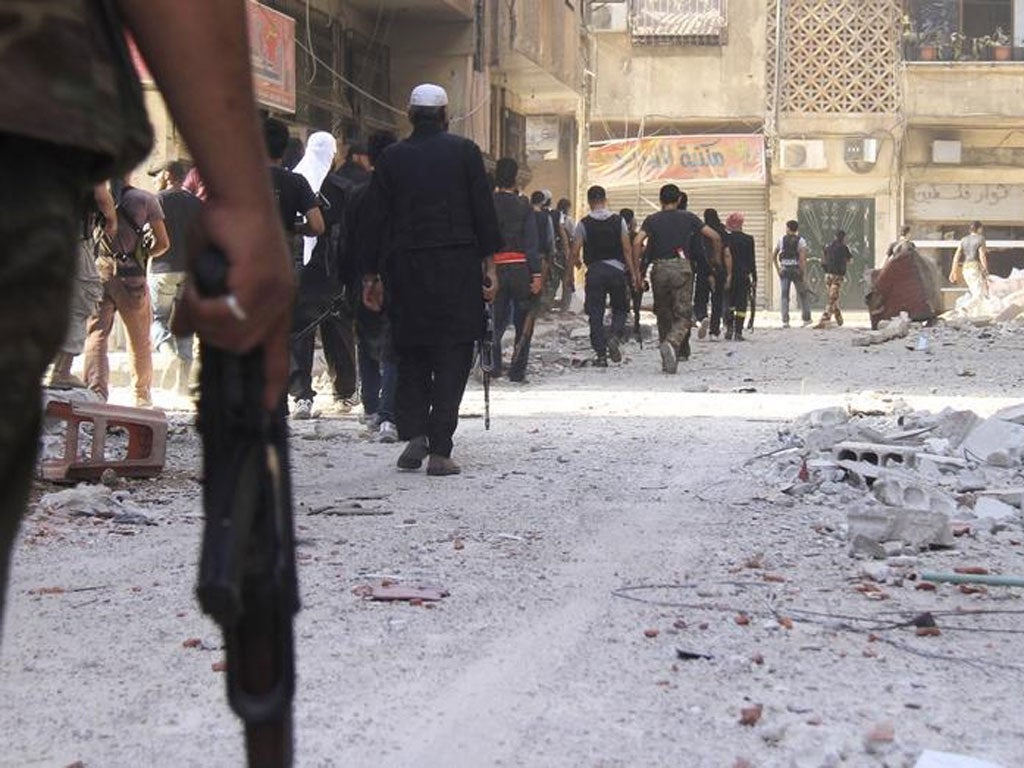Yarmouk: A camp without hope for a people without a land
Of its 250,000 Palestinians, scarcely 18,000 now remain; up to 1,500 are dead, many of them due to hunger


Not long after the start of the Syrian civil war, from the heights of the Qasioun mountain north of Damascus, I watched with Syrian friends as the first shells exploded upon the Yarmouk Palestinian camp. The Syrian army artillery behind us fired lazily, maybe one round every five minutes, and a little puff of smoke would rise over the distant heat haze. “So they’re mixed up in another war!” one of my Syrian acquaintances said unkindly. “They don’t know whether they are rebels or Bashar men.”
Pity the Palestinians. They are eternal refugees; from Palestine in 1947-48, from Jordan in 1970-01, from Lebanon in 1982, from Kuwait in 1991 and now from Syria. Expelled from their lands in mandate Palestine, opposed to King Hussein’s army in Jordan’s mini-war, taking sides with the Muslim left in Lebanon and with Saddam after he invaded Kuwait, Syria’s political divisions have doomed the Palestinians again in the country that once regarded itself as the vanguard of the Palestinian people.
Treated with comparative respect in Syria – they could hold passports, own homes and take jobs – Palestinians benefited from the Baath party’s absolute support. But once Bashar’s rule was challenged, the old dogmas and rivalries drove the Palestinians into despair. Hamas, which had maintained its notional headquarters in Damascus under Khaled Meshaal, decamped to the fleshpots of Doha and opposed the Syrian regime. Fatah, forgetful of its own vast diaspora, hoped its supporters would do what Yasser Arafat failed to do: stay out of the war.
But the Syrian Baath party does not forgive traitors; those who tried neutrality and those who stood against Sister Syria would pay the price. Only the Popular Front for the Liberation of Palestine-General Command – who in reality may have been responsible for Lockerbie, let alone the murder of Rafiq Hariri, (speak this not in The Hague just now), remained loyal.
And of course, the Free Syrian Army, the nationalist Nusra fighters and the “moderate” Islamists moved into Yarmouk as they took over other Damascus suburbs.
There were signs today that Palestinian intervention from Beirut might allow a few Palestinians to leave Yarmouk, but it has long been a place of starvation and rubble. Of its 250,000 Palestinians, scarcely 18,000 now remain; up to 1,500 are dead, many of them due to hunger. Of Syria’s registered 540,000 Palestinian refugees, 270,000 are homeless inside the country and 80,000 have fled, two-thirds of them to Lebanon. Up to 11,000 are in Jordan, 5,000 in Egypt, a few in the midden of the Gaza Strip. Yarmouk and other camps in Syria – the refugees from Raml camp north of Homs are now surviving in surrounding villages – were created, like the other great pits of misery in the Arab world, for the Palestinians who were driven from their homes in what was to become Israel. But in the midst of the Syrian slaughter, who now cares about the Palestinians?
In Lebanon, Palestinian NGOs speak with deep feelings about their history, of how Ariel Sharon’s death last weekend re-awoke the suffering of Palestinians under Israel’s rule in Lebanon and in the massacre of Sabra and Shatila in 1982. “Even the bourgeoisie of the Palestinians are now becoming involved,” one leftist Palestinian “Democratic Front” member said. “Everywhere there are demonstrations.”
In the West Bank and in Israel, too; although Christian Palestinians – remembering the fate of Syrian Christians at the hands of Islamist rebels – are none to keen to condemn Bashar al-Assad. The Palestinian Authority, which sent its own envoy to Syria, has little interest in the Palestinian diaspora. The “right of return” has long been a dead card when the Israelis are already concretising the West Bank with their own colonies.
With crucifying irony, the US – which has for decades given Israel carte blanche in its treatment of Palestinians and colonisation of the Occupied Territories – has now expressed its concern for the “dreadful” situation of the Palestinians in Syria. “We are punished now by the Arabs as well as by the Israelis,” the leftist Democratic Front man said. “And now the Americans feel sorry for us!”
Bookmark popover
Removed from bookmarks